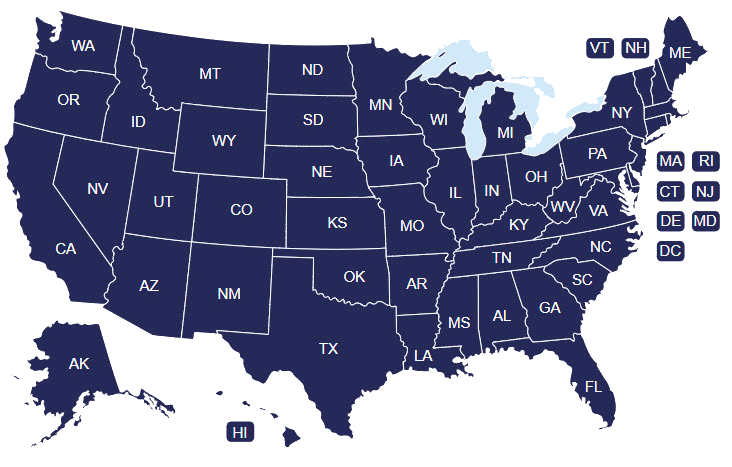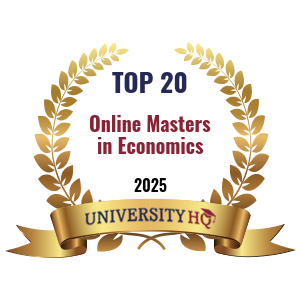Project Management Essentials
Explore the core elements of project management, including basic principles, critical roles, and popular methodologies like Agile and Scrum. Enhance your understanding of how these components contribute to successful project execution and how you can utilize them in your profession.
Understanding Project Management
Project management is the practice of planning, executing, and finalizing projects within specific constraints. These constraints typically include scope, time, and budget, often referred to as the "triple constraint." Effective project management ensures that project goals align with organizational objectives.
Tools like Gantt charts and software such as Microsoft Project facilitate tracking progress and adjusting plans. From defining project roles to managing resources and risks, mastering these foundational aspects is essential.
Roles in Project Management
Project management involves several key roles, each with distinct responsibilities. The project manager oversees the project from start to finish, ensuring resources are allocated efficiently.
A project coordinator supports the manager by maintaining schedules and documentation. In Agile environments, the scrum master facilitates communication and removes obstacles impacting the team's progress. Understanding these roles and their functions is vital for anyone seeking to thrive in a project-oriented environment or ascend the organizational structure. Explore more about project management roles through various educational resources.
Agile and Scrum Fundamentals
Agile methodology emphasizes flexibility and customer satisfaction through iterative development. Projects are broken down into small, manageable units called sprints, allowing for regular reassessment and adaptability. Scrum is one of the most popular frameworks within Agile, focusing on empowered teams and continuous improvement.
In Scrum, roles like the product owner and scrum master are critical, with the latter ensuring team efficiency and aligning the work with the project's goals. It's crucial to understand Agile principles and how frameworks like Scrum operate to navigate dynamic project environments effectively.
Educational Pathways in Project Management
Through structured learning, you'll explore essential methodologies, including Agile and Scrum, which are integral to successful project delivery. Diverse educational platforms now offer tailored courses that suit various learning preferences.
Choosing the right program means you'll not only hone your capabilities but also gain credibility in the field. As you advance through project management education, you'll discover critical techniques for project planning, execution, and monitoring. This essential preparation will empower you with a competitive edge in a rapidly evolving industry, setting the stage for a successful career.
Undergraduate Degree in Project Management
An undergraduate degree in project management gives you a strong business foundation. You learn how to blend management theory with practical leadership skills. The curriculum often includes finance, accounting, and operations to prepare you for diverse environments.
This degree equips you to plan and manage projects in fields such as engineering, health care, and manufacturing. You'll develop both technical and interpersonal skills. Technical skills include areas like delegation, decision-making, and budgeting. You may also want to check out an accelerated project management program to finish your degree faster.
Core Subjects: management theory, leadership skills, finance and accounting
Graduate Degree in Project Management
A graduate degree in project management equips you with essential skills to lead projects effectively. This degree is suitable for those looking to advance their career in various industries.
Key Skills You Gain:
- Leadership and team management
- Risk assessment and mitigation
- Strategic planning and execution
You can choose from several study options, such as online or on-site programs, providing flexibility depending on your schedule.
When selecting a graduate MBA in project management program, consider factors like accreditation, faculty expertise, and networking opportunities. A degree from a reputable institution can significantly enhance your employability and open doors to leadership roles. Also, the opportunity to customize your electives allows specializing in areas that best suit your career goals.
Career Pathways in Project Management
In your journey to a project management career, various pathways demand specific skills and educational backgrounds. From starting as a project management specialist to advancing toward roles like program manager or senior project manager, understanding these pathways can guide your career choices.
Beginning a Career in Project Management
Starting your career as an assistant project manager requires a mix of education and practical skills. A bachelor's degree is often needed, with courses in business or business administration offering a solid foundation.
Practical experience is crucial. Engaging in internships or entry-level positions helps you understand project management tools and methodologies. Communication and leadership are vital skills often highlighted by employers.
Certifications such as the Certified Associate in Project Management (CAPM) can boost your qualifications. These credentials showcase your commitment and proficiency, making you more attractive to potential employers.
Advancing to Senior Roles
Moving up to senior roles like senior project manager or program manager involves honing advanced skills. Leadership and strategic planning become central as you oversee more complex projects.
Experience in managing high-budget and cross-functional projects adds value. Developing skills in risk management and conflict resolution is important to navigate challenges effectively.
Certifications such as the Project Management Professional (PMP) are often sought after for senior roles, reflecting your expertise and readiness for higher responsibilities. Staying updated on industry trends and continually improving your skills through workshops and training will position you for growth in project management jobs with a positive job outlook.
Certifications and Professional Development
Navigating the landscape of project management certifications can significantly impact your career trajectory. With numerous options available, it’s essential to select the right path and remain committed to continuous learning to remain competitive in the field.
Selecting the appropriate certification can enhance your expertise and credibility. Consider well-regarded options like the Project Management Professional (PMP) certification, which recognizes leadership experience and competency in project management. For those starting out, the Certified Associate in Project Management (CAPM) is a solid choice, requiring less experience and serving as a steppingstone for higher credentials.
Evaluate your career goals and current experience level. Advanced certifications like the Portfolio Management Professional (PfMP) may suit managers looking to handle complex portfolios. Make sure to meet the educational and professional experience requirements for the certification you choose, as these vary widely.
Continuing Education for Project Professionals
Project professionals must continuously update their skills. Many organizations, such as PMI, offer resources that support ongoing education to keep up with evolving best practices. Enroll in courses and workshops that align with your chosen certification.
Participate in webinars, seminars, and conferences to remain connected with industry trends and emerging practices. Engaging in these activities helps you accumulate professional development units (PDUs), which are often required to maintain certifications like PMP. Leveraging platforms for online learning can also provide flexibility, allowing you to enhance your knowledge at your own pace.
By prioritizing continuous learning, you ensure your skills remain relevant, improving your project management effectiveness and boosting your career prospects.
Project Management Skills and Best Practices
Mastering project management necessitates a blend of essential skills and effective practices. Key skills like communication and time management are foundational, ensuring projects are completed efficiently and on schedule. Implementing best practices such as thorough project documentation and proactive change management can mitigate risks and improve project outcomes.
Essential Skills for Project Managers
Successful project management relies on a comprehensive skill set that allows for effective and efficient handling of tasks. Strong communication skills facilitate collaboration and minimize misunderstandings. Effective time management ensures that milestones are achieved, and deadlines are met.
Critical thinking and problem-solving are vital for assessing project needs and crafting viable solutions to challenges. Additionally, maintaining comprehensive project documentation is necessary for tracking progress and ensuring transparency. Change management and risk management skills help you adapt to project changes and anticipate potential issues, enabling you to address them proactively.
Implementing Effective Project Management Practices
To improve project delivery, certain practices need to be entrenched in your workflow. Ensuring detailed and clear project plans provides a roadmap for all stakeholders. Continuous updating of project documentation keeps the project on track and provides a clear reference for any adjustments.
Integrating strong change and risk management practices allows you to handle unforeseen events effectively. Regular risk assessments help identify potential challenges early, enabling preemptive actions. Establishing a culture of open communication strengthens team collaboration and aligns efforts towards common goals. By focusing on these practices, you can enhance project execution and achieve desired outcomes.
Tools and Technologies in Project Management
In today's project management landscape, leveraging the right tools and technologies is crucial for success. With software solutions streamlining processes and technology playing a vital role, understanding their applications is key to efficient management.
Software Solutions for Project Management
Choosing the right project management software can significantly impact your team's performance. Popular solutions include Gantt charts for scheduling and tracking progress; they are known for their versatility and facilitate the creation of project timelines. Trello offers a Kanban-board style interface that is especially suitable for simpler projects, allowing tasks to be categorized under boards labeled as "Not Started," "In Progress," and "Complete."
Another tool is Wrike, which is widely acclaimed and used globally. It features a comprehensive suite of tools designed for project managers across diverse industries. By employing these software solutions, you enhance communication, streamline tasks, and achieve better project outcomes. Each platform comes with unique functionalities, from task tracking to resource allocation, enabling you to tailor the tools to your specific project needs.
The Role of Technology in Project Management
Technology is transforming project management by facilitating real-time collaboration and efficient resource allocation. In the digital economy, accessing project management tools like Google Project Management can improve task management and coordination. These technologies offer features that help in tracking project metrics, automating decision-making processes, and enhancing collaborative efforts.
With advancements in software development, many tools now include AI-driven analytics, offering insights into project performance trends. This integration of technology ensures that your team remains adaptive and responsive to changes. Moreover, the incorporation of technology allows you to manage projects remotely, breaking geographical barriers and increasing productivity across diverse teams.
Specialized Areas of Project Management
Specialized areas within project management allow you to focus on specific industries that often require unique skills and expertise. These include construction, healthcare, and sustainability, each with distinct challenges and requirements.
Construction and Infrastructure Project Management
In construction and infrastructure project management, you coordinate large-scale projects involving buildings, roads, or bridges. Your role as a construction manager involves overseeing tasks from planning to execution, ensuring budgets and timelines are adhered to.
Key skills in this specialization include risk management and a deep understanding of construction codes and safety regulations. Collaboration with engineers, architects, and contractors is crucial for success.
For more on construction management, specialized training and certifications can enhance your qualifications, equipping you with the advanced knowledge needed for complex projects. This field often requires a unique blend of technical and leadership skills to drive project success.
Healthcare Project Management
In the healthcare field, project management focuses on improving medical facilities, technologies, and patient care processes. You may lead projects such as implementing new electronic health record systems or designing patient care programs.
Effective communication is essential, as you'll work with a diverse team of healthcare professionals. Familiarity with healthcare regulations and compliance standards is crucial.
Specialization in this area can be further enhanced by healthcare-specific certifications, enabling you to manage complex projects in hospitals or clinics. Your ability to navigate the regulatory landscape and improve service delivery is vital for making a meaningful impact.
Sustainable Project Management
Sustainable project management centers on balancing economic success with environmental responsibility. This specialization can involve projects focusing on renewable energy, waste reduction, or sustainable community development.
As a project manager in this field, you will assess the environmental impact and integrate sustainable practices into project planning and execution. Skills in stakeholder engagement and sustainable resource management are important here.
Continuing education, including courses on sustainability principles, can be beneficial. This specialization aligns with the growing emphasis on corporate social responsibility, making it a rewarding area for those passionate about environmental issues.
Building a Project Management Community
Fostering a supportive project management community encourages knowledge sharing and professional networking. Engaging with this community can enhance leadership skills and expand your professional network by connecting with industry thought leaders.
Networking and Thought Leadership
Engaging in project management communities provides opportunities to connect with like-minded professionals who share your interests. Networking lets you exchange ideas, learn new strategies, and develop relationships with influential thought leaders in the field. Participating in forums and attending events can help you stay updated on industry trends and innovations. For example, joining platforms like the PMI LinkedIn Group connects you with a broad network of industry experts.
Leveraging opportunities for thought leadership establishes your presence in the community. Sharing valuable insights and experiences can position you as a problem-solver and influencer within the field.
Contributions to the Project Management Body of Knowledge
Contributing to the Project Management Body of Knowledge allows you to impact the field's growth and development. Share your experiences, case studies, or concerns to address existing challenges and propose innovative solutions. As you contribute, you not only aid in enhancing collective knowledge but also solidify your role as an active community member.
Encouraging active participation strengthens your leadership and management abilities. Platforms like HogoNext suggest empowering community members to take leadership roles. By embracing a collaborative approach, you can drive advancements in project management practices and build a richer, more diverse professional network.
State-By-State Project Management Rankings
Select a State to Search Colleges & Universities

- Select a State
-
- Alabama
- Alaska
- Arizona
- Arkansas
- California
- Colorado
- Connecticut
- Delaware
- District of Columbia
- Florida
- Georgia
- Hawaii
- Idaho
- Illinois
- Indiana
- Iowa
- Kansas
- Kentucky
- Louisiana
- Maine
- Maryland
- Massachusetts
- Michigan
- Minnesota
- Mississippi
- Missouri
- Montana
- Nebraska
- Nevada
- New Hampshire
- New Jersey
- New Mexico
- New York
- North Carolina
- North Dakota
- Ohio
- Oklahoma
- Oregon
- Pennsylvania
- Rhode Island
- South Carolina
- South Dakota
- Tennessee
- Texas
- Utah
- Vermont
- Virginia
- Washington
- West Virginia
- Wisconsin
- Wyoming


